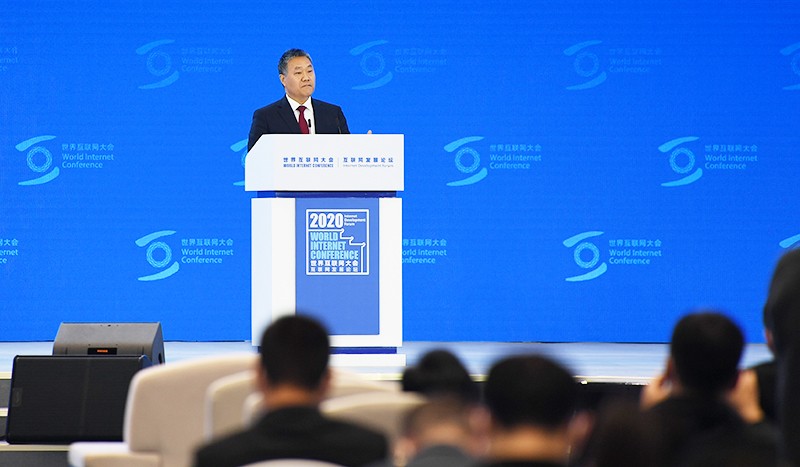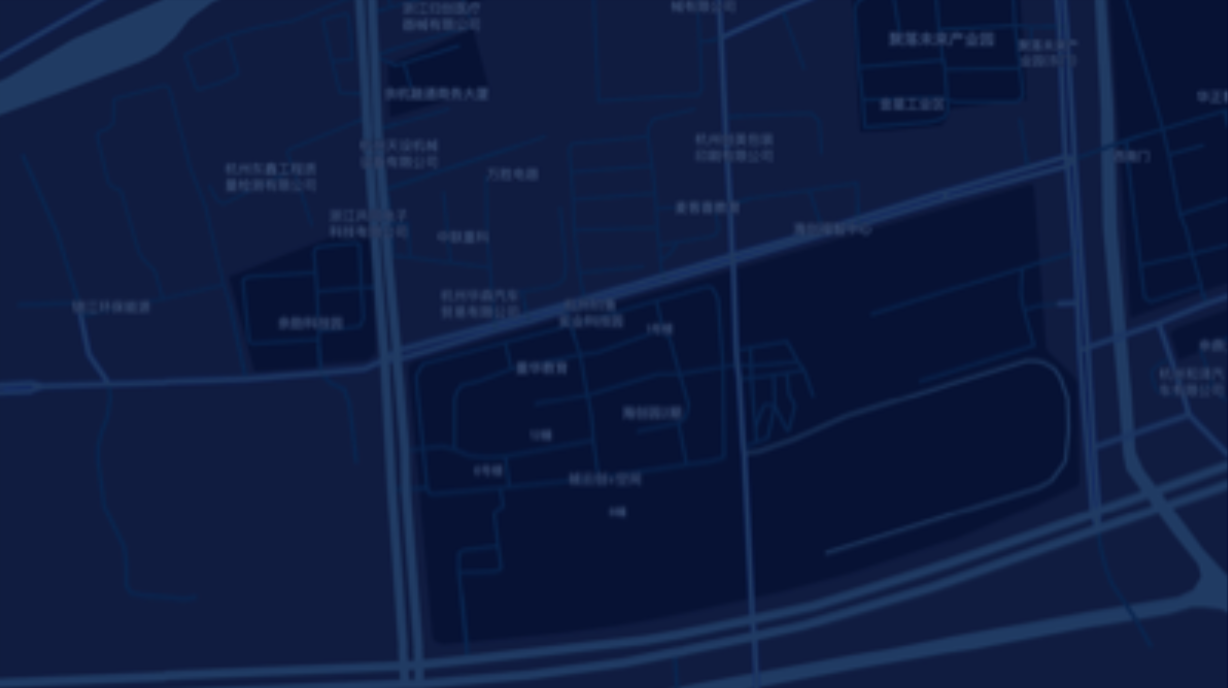


Driven by a new round of information and technology reform, we human beings are rapidly marching towards a smart society where everything is interconnected. This new state will trigger a comprehensive revolution that involves production approaches and lifestyles, social organization forms, and industrial development models. "Computing capacity will be a core foundation that supports the smart society," said Zhu Shiqiang, President of the Zhejiang Lab, during a keynote speech titled "Intelligent Computing: Cornerstone of Smart Society" at the Science and Technology Development and Innovation-Driven Society Forum during the World Internet Conference on November 23rd.
"Computing technology has escalated into a new hotspot of global competition," said Zhu Shiqiang, "Current computing technology, however, is facing dual challenges in terms of computing power and energy efficiency. For example, artificial intelligence (AI) is now demanding doubled computing power every three months. Pushed by a new wave of changes where everything becomes more digital and intelligent, global computing power must increase by nearly 1 million times in the next five years, and information communication terminals, connections, and energy consumption will rise a thousandfold. If AI is achieved through ‘brute computing’, we are highly likely to cause a new energy crisis. Therefore, we urgently need a new computing method: intelligent computing."
Zhu Shiqiang proposed the Zhejiang Lab's definition of intelligent computing -- intelligent computing collectively refers to new computing theories and methods, architecture systems, and technological capabilities that support an interconnected and smart society. Intelligent computing comprises two significant areas -- computing for intelligence, and computing by intelligence. Its technical objectives are high computing power, increased energy efficiency, strong intelligence, and strong security; in application, it aims to achieve inclusive and ubiquitous services, and be easily accessible whenever and wherever needed.
According to Zhu Shiqiang, intelligent computing is not merely a cloud computing or supercomputing upgrade. Instead, it is coordination across a broad spectrum of computing resources and modes, with the ultimate aim of completing a complex process, from task proposal to output of the result: a vision that will require a whole set of fundamental frameworks for intelligent computing. Zhu Shiqiang, therefore, believes that the architectural design of the entire system that caters to these demands is needed. In applicable scenarios, the tasks that have been proposed will be divided, understood, computed, and verified precisely and efficiently. In the meantime, a mature knowledge base and algorithm library will also be in place as part of the foundation, so that wide-area computing resources can be deployed for data processing. After verification, accurate results will be exported and fed back to users.
"People may have experienced the benefits of intelligent computing in their lives through the application of positioning and navigation services, for example," said Zhu Shiqiang, continuing, "In the future, high-precision positioning and navigation designed for intelligent driving will be a highly-integrated field of application of intelligence. It covers intelligent interactive computing, scenario understanding, positioning and perception, road-condition collection, mapping, and route planning. All these will require mature intelligent services, a high degree of terminal-edge-cloud collaboration, and stronger computing power."
Stanford University has launched the Folding@home distributed computing program, aiming to make breakthroughs in protein folding, in an effort to help scientists and researchers expedite a method for dealing with Covid-19. They managed to recruit 400,000 computing power volunteers within just three weeks. Supercomputing power can be provided via wide-area collaboration, enabling processing capability to reach 2.5Exaflops (allowing 1 million trillion floating-point operations per second). This computing power is stronger than that of all other supercomputers around the world. The program also developed a 3D protein model of the coronavirus. "The case has preliminarily shown what intelligent computing can do in the future," said Zhu Shiqiang.
Responding to the call of actual needs and predicted trends of future science and technological development, Zhejiang Lab will aim to study and set up a system of theories, technologies, and standards for intelligent computing, to establish a world-class innovation center for intelligent computing. To achieve this goal, the Lab has fully launched the "1418" innovation program, covering one biologically-themed international intelligent computing program, four big science facilities for intelligent computing, and eight basic research platforms for intelligent computing. The Lab will also implement one hundred major technological programs for intelligent computing in a sequence.
"In the future, we will develop supercomputing power in the field of intelligent computing, providing ubiquitous intelligent services, and making computing as easily accessible as electricity," said Zhu Shiqiang.
Intelligent computing needs to make breakthroughs in new theories such as cognitive computing, and new methods such as neuromorphic computing and quantum computing. During the "Release Event of Pioneering Technological Achievements of the World Internet" held on the afternoon of November 23rd, the neuromorphic computer jointly developed by Zhejiang Lab and Zhejiang University was successfully selected as the "Leading Technological Achievement".














